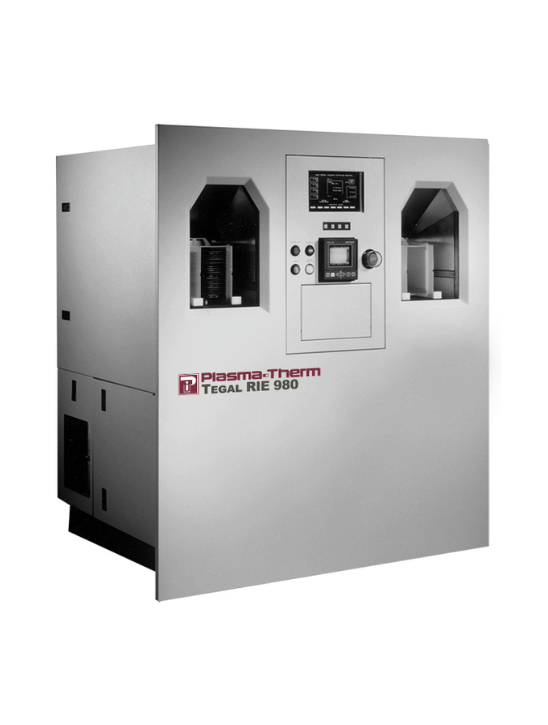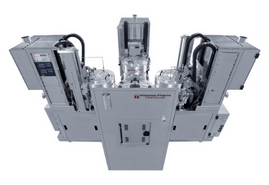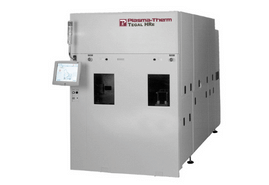
Plasma RIE etching is both efficient and gives you directional etching capability for greater flexibility. You can also etch a wide range of materials including dielectric materials (SiO2, Si3N4, etc.), silicon-based materials (Si, a-Si, poly-Si), compound materials (GaAs, InP, GaN, etc.), and metals (Al, Cr, Ti, etc.). We offer both standard RIE systems and ICP-RIE systems.
Your process chemistries will differ depending on your film types. For example, dielectric etch applications use fluorine-based chemistries, while metal etch uses chlorine-based chemistries. You can adjust and optimize etch conditions by tuning the settings of process parameters such as RF power, pressure, and gas flows.
Ionization
Plasma is initiated by applying RF power at 13.56 MHz to the powered electrode (cathode), while the other electrode is grounded. The electric field ionizes the gas molecules, creating the plasma.
Ion Acceleration
Typically, chemically reactive species (ions) are accelerated toward the substrate (usually a silicon wafer) to remove a specific deposited material.
RF Power
Generation of reactive species in the bulk plasma (excited molecules, radicals, etc…) and the density of the charged species (ions and electrons) depend on the RF power applied.
Gas In/Gas Out
Process gases enter the chamber through the showerhead in the top electrode, and the reactor is evacuated by a vacuum pump.
EXPLORE TECHNICAL PAPERS
Want to learn more about this topic? Click here to review technical papers on RIE principles, practices and outcomes.
SEE ALL ETCH PRODUCTS
To review all our etch products, processes, capabilities, and brands, click here.
NEED ASSISTANCE?
Let our experts help you customize our processes solutions for your applications.

